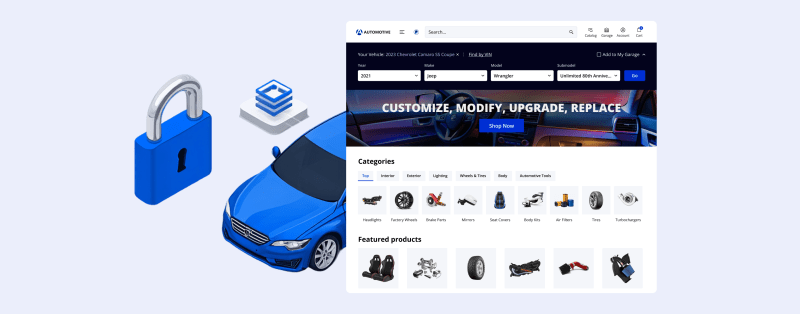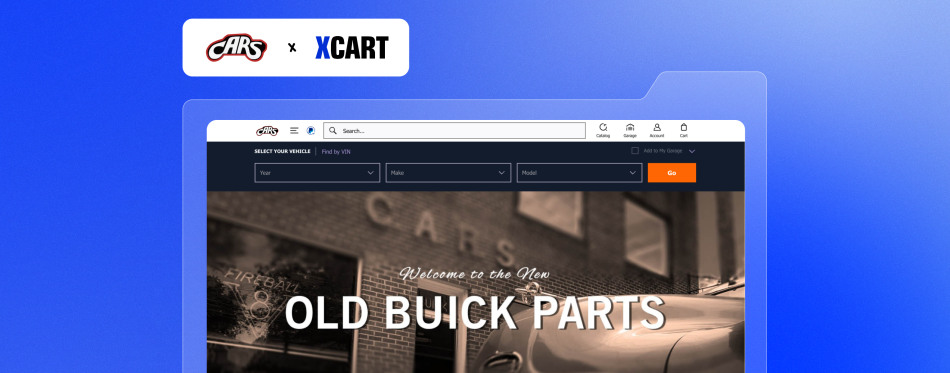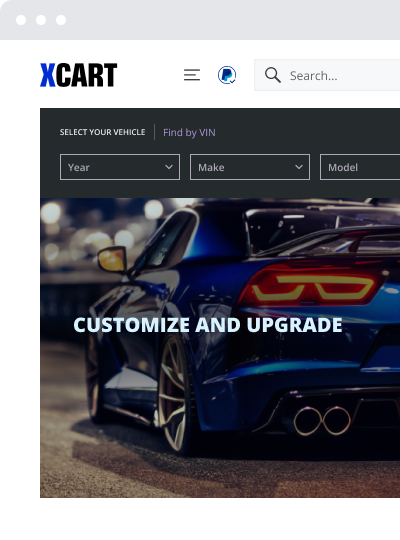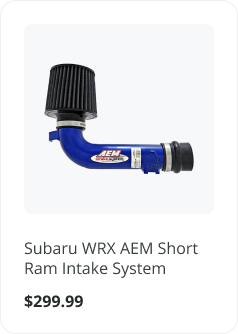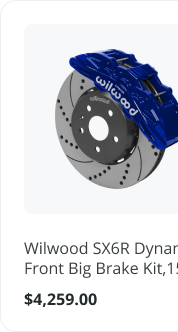Cyber Security for Automotive eCommerce Stores in an Era of Digital Integration
The state of automotive technologies is one of rapid and chaotic expansion in an era where vehicles receive frequent software updates, and a commercial truck functions as a mobile data center. This is no longer a simple mechanical industry. We’re dealing with a vast network of embedded systems, a constant transmission of vehicle data, and an increasingly connected infrastructure that stretches from the manufacturer to the aftermarket parts store.
With this technological advancement comes a significant automotive cybersecurity challenge. If you’re running an automotive eCommerce store, you are a component of this system because automotive cybersecurity is no longer confined to the vehicle; it now involves securing the entire digital supply chain that supports it.
Between 2023 and 2024, over 60% of cyber incidents in the automotive sector had a high to massive impact, affecting thousands, and in some cases, millions of vehicles. And many of these attacks were launched remotely. The threat actors are sophisticated, and they are not just targeting car manufacturers. They are actively searching for the weakest point of entry, and that could very well be your online store.
Your Digital Storefront: An Attack Vector
Why would a hacker target your automotive eCommerce platform? The motivation is access to high-value data. We’re not just talking about customer names and addresses. You’re handling vehicle identification numbers (VINs), which are unique identifiers for every vehicle. This data can be exploited to create fraudulent ownership documents, order duplicate keys, and facilitate vehicle tracking and eCommerce theft.
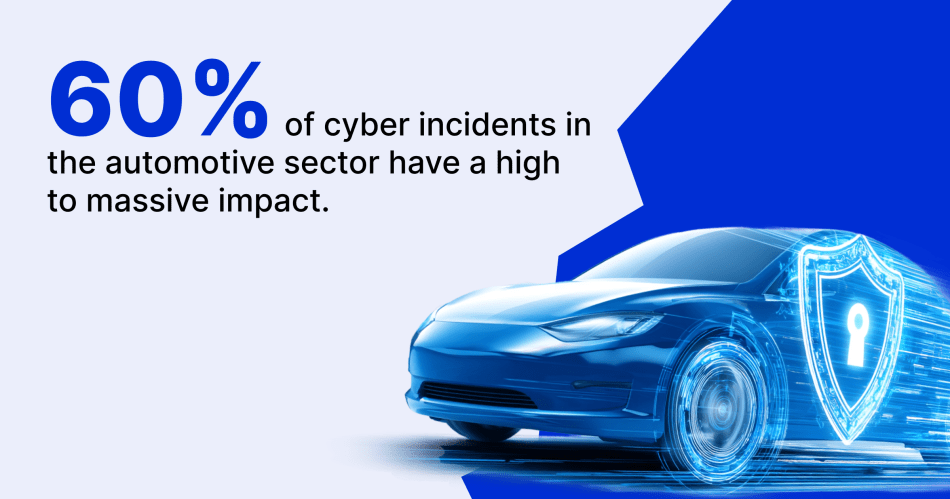
Consider the implications. A breach of your customer database could enable a wave of highly targeted phishing attacks. A customer might receive an email that appears to be from your store, referencing their specific make and model, and offering a “critical” software update that is actually malware. The potential risks for large-scale compromise are immense.
It’s not only about data theft. Your store could become an unwitting distributor of compromised hardware. Imagine a scenario where a threat actor gains access to your inventory system and swaps out genuine electronic control units (ECUs) with malicious clones. These compromised ECUs could then be used to create backdoors into a vehicle’s network, allowing for remote manipulation of critical systems. So, the safety risks are direct and severe.
On top of that, the threat is an interconnected system of vulnerabilities. An exploit on your eCommerce platform could be the initial point of compromise in an attack that leads to a full-blown vehicle fleet takedown. We’ve seen real-world examples of this. In recent years, major car manufacturers and suppliers have suffered significant data breaches, exposing millions of customers’ information. These breaches often originate from third-party vendors, which highlights the interdependent nature of the automotive cybersecurity challenge.
Mandated Security Compliance in the US Market
In the United States, the approach to automotive cybersecurity is different from Europe’s single mandate. The US regulations are a composite of federal agency guidance, industry-led standards, and the constant threat of legal action. The era of unregulated automotive software development is over; compliance is just measured differently here.
The key federal player is the National Highway Traffic Safety Administration (NHTSA). In 2022, NHTSA released its updated Cybersecurity Best Practices for the Safety of Modern Vehicles. While not a formal law like the United Nations Economic Commission’s (UNECE’s) R155, this document outlines the US government’s explicit expectations for the automotive industry. It calls for a risk-based approach and a layered security architecture, covering everything from initial vehicle design to post-production support, including how software updates are managed. NHTSA has the authority to investigate and compel recalls for vehicle cybersecurity vulnerabilities that pose an unreasonable risk to safety, making these best practices carry significant weight.
What does this mean for you as a US-based eCommerce store owner? The effect cascades down the supply chain. Major automakers and Tier 1 suppliers in the US align with NHTSA’s guidance and are active members of the Automotive Information Sharing and Analysis Center (Auto-ISAC). The Auto-ISAC is the central hub for the industry to share threat intelligence and establish best practices. To protect themselves, these automotive OEMs are contractually requiring their suppliers and partners, including parts distributors and eCommerce platforms, to demonstrate adherence to these stringent security standards.
Therefore, even without a single federal law, you are required to prove you are managing the cybersecurity of your platform and data. Being able to demonstrate a robust, documented cybersecurity program aligned with NHTSA and industry expectations is a fundamental requirement for doing business in the modern US automotive supply chain.
Engineering a Defensive Architecture with Cybersecurity Solutions
So, how do you protect your eCommerce store from this onslaught of cybersecurity threats with automotive cybersecurity solutions? It requires a multi-layered, in-depth defense strategy that is as dynamic as the threats themselves.
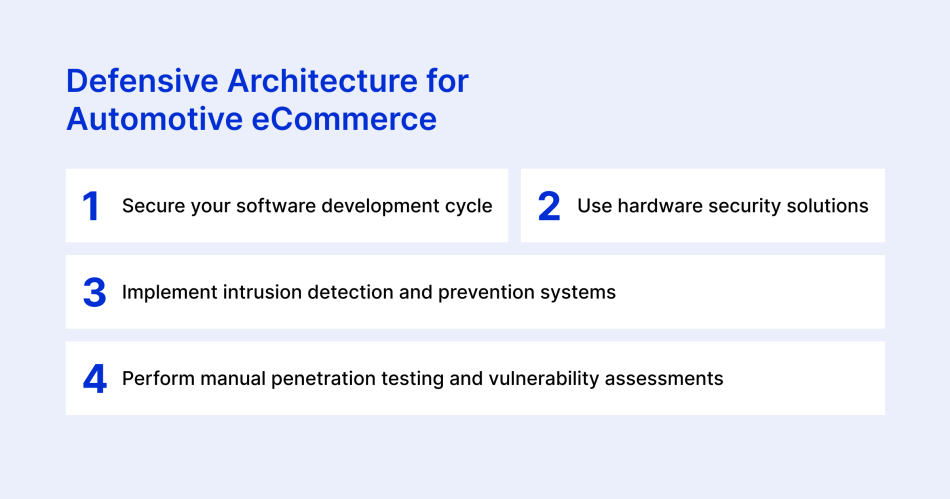
A crucial, yet often overlooked, aspect is the security of your own automotive software development lifecycle (SDL). If you’re building custom integrations or proprietary tools, security must be a core requirement from the project’s inception. This means implementing practices such as static code analysis to identify vulnerabilities before they enter a production environment. It means rigorous unit testing and aiming for high code coverage to ensure that your code is functional and resilient against attacks.
There are also hardware security modules (HSMs), dedicated cryptographic processors that protect critical digital assets. They safeguard and manage your digital keys and perform cryptographic operations. An HSM provides a tamper-resistant environment for your most sensitive data. Whether it’s protecting the cryptographic keys used for secure communication with vehicles or securing the backend servers of your eCommerce store, HSMs provide a level of physical security that software-only solutions cannot achieve.
Of course, you need robust intrusion detection and prevention systems for risk management. These systems actively monitor your network for malicious activity and policy violations, providing real-time alerts and blocking capabilities. But don’t just rely on automated systems. Regular penetration testing and vulnerability risk assessments are critical, too. You need to hire security professionals to simulate attacks on your own systems to identify weaknesses before they can be exploited by threat actors.
X-Cart: A Foundation for Automotive Cybersecurity in eCommerce
At X-Cart Automotive, we understand the unique cybersecurity challenges facing the automotive industry. That’s why we’ve designed our platform from the ground up to be a secure foundation for your online business.
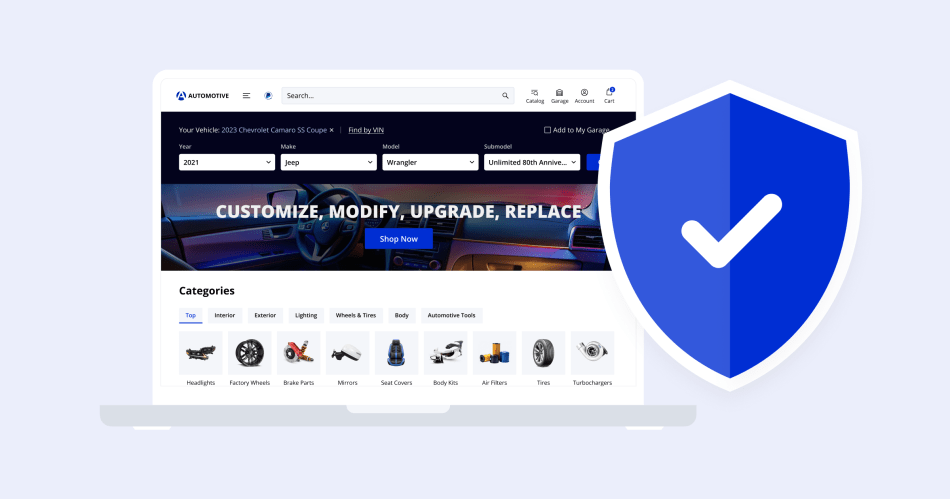
We provide robust HTTPS/SSL security services to encrypt data in transit, and our architecture includes built-in protections against common web application vulnerabilities like XSS and CSRF attacks. We also understand the importance of controlling access to your sensitive data. With X-Cart Automotive, you can set up limited staff access to the store’s back end to ensure that only authorized personnel can view and manage critical information.
Next, we recognize that the threat is constantly evolving. That’s why we provide our users with lifetime access to software updates, so you can always apply the latest security patches and features. Our platform allows for the blocking of visitors by IP address, country, or user agent, giving you an extra layer of defense against known malicious sources.
And when it comes to handling sensitive vehicle data, our VIN lookup and My Garage features are designed with security in mind and store valuable information responsibly.
X-Cart Pay Security Mechanisms
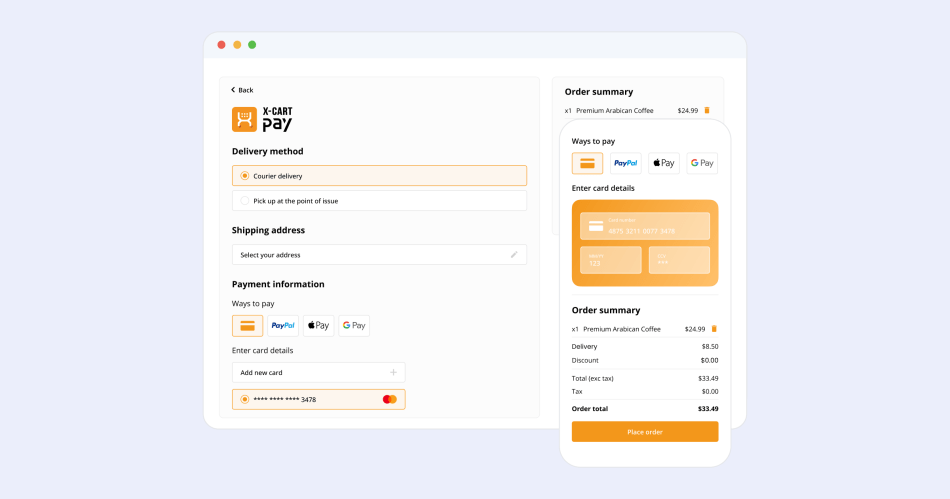
The commitment to security extends to the most critical part of any eCommerce operation: getting paid. For our US-based merchants, we offer X-Cart Pay, a fully integrated payment solution built by the same team that built your store. Because it’s a native solution, not a third-party plugin, it eliminates the complexity and potential vulnerabilities of juggling different systems.
X-Cart Pay has multiple layers of financial security. First, it uses free tokenization for all transactions. This fundamental security measure replaces sensitive credit card details with a unique non-sensitive code, or token, meaning your customers’ actual card numbers are never stored on your server, reducing your PCI compliance scope and risk.
On top of that, it implements 3D Secure, an extra authentication step that helps verify a customer is who they say they are, reducing the risk of fraudulent transactions.
The system’s core is its advanced AI-driven fraud protection, an intelligent defense that learns from millions of global transactions to detect threats in real-time. It actively screens for suspicious behavior and provides extra safeguards by:
- Detecting card testing patterns (like multiple small purchases)
- Flagging unusually large or high-risk orders for review
- Identifying and blocking transactions masked by a VPN
- Maintaining and enforcing blacklists of known fraudulent IPs, emails, and cards
If a transaction is declined for security reasons, you get clear insights as to why. This focus is on stopping fraud, not legitimate customers. And because payments and platform are one, you have a single expert X-Cart support team to turn to for any security issues. So, you get a response when you need it most.
For merchants seeking an even more comprehensive layer of security, the NoFraud via X-Payments addon offers a full-service, automated fraud prevention solution. It provides real-time decisions for every transaction, eliminating the need for manual review and protecting you from chargebacks with zero fraud liability. You will be able to accept more orders confidently, knowing you are protected from fraudulent activity.
Automotive Cybersecurity: Continuous Security Posture Management
Achieving automotive cyber security for eCommerce stores is an ongoing process. The threat landscape is in a constant state of flux, with new vulnerabilities and cyber attack vectors emerging all the time. The rise of electric vehicles brings with it a whole new set of challenges, from securing charging infrastructure to protecting the vast amounts of data generated by these highly connected machines.
The only effective method is to adopt a proactive and risk-based approach to security. This means continuous monitoring, regular threat analysis, and a commitment to ongoing improvement of your security controls. It means understanding that in the age of the complex software-defined vehicle, your eCommerce store is more than just a retail outlet but a critical component in an interconnected technological system.
The safety and security of your customers and the operational integrity of the vehicles they drive can be directly affected by your security posture. The complexity is increasing. So get prepared to manage it!
Frequently Asked Questions about Automotive Cybersecurity
1. Why are cybersecurity risks such a big deal for a store that just sells car parts?
It’s a huge deal because automotive stores handle data that’s incredibly valuable to criminals. You’re not just storing names and addresses; you have Vehicle Identification Numbers (VINs), which can be used to clone cars or commit other fraud. More importantly, if your store is hacked, it could be used to sell unsafe, compromised electronic parts that pose a real-world safety risk to your customers on the road.
2. These automotive cybersecurity solutions all sound very technical. What’s the most important first step I can take?
The best first step is to build your store on a foundation that takes security seriously from the start. Instead of worrying about every technical detail yourself, choose a specialized eCommerce platform like X-Cart Automotive that is already designed to handle these cyber threats. Using a platform with built-in security features and a secure, integrated payment system is the most effective way to protect your business without needing to be a cybersecurity expert.
3. How does my payment system actually affect my store’s security?
Your payment system is one of the most frequent targets for hackers. A secure and integrated system like X-Cart Pay helps protect you in two key ways. First, it uses technologies like tokenization to keep sensitive credit card numbers from ever being stored on your site. Second, it uses smart AI-powered tools to automatically screen for and block fraudulent transactions in real-time, acting as a constant guard against financial crime.
Need a secure eCommerce platform to sell auto parts?
About the author

